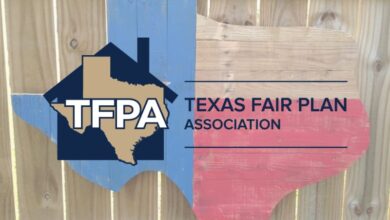Cross-Motions for Sumary Judgment Denied in Collapse Claim
The court denied cross-motions from the insured and the insurer after the insured's dwelling suffered a collapse of the ceiling. Simons v. Fed. Ins. Co., 2025 U.S. Dist. LEXIS 75839 (C.D. Cal. March 4, 2025).
Gary Simons bought a second home located in Park City, Utah (Utah Property) that was an architectural master piece sitting on 4.5 acres of land. He purchased a policy from Chubb. A renewal of the policy for the third year of coverage provided $18,595,000 in coverage for the dwelling and $4,978,500 in content coverage.
On August 7, 2022, the ceiling suddenly and unexpectedly collapsed, causing substantial damage and rendering the Utah Property unhabitable. A claim was submitted to Chubb. Chubb's inspection reported collapse damage to the kitchen and great room ceiling and water damage throughout the home. The inspector concluded that the cause of the kitchen ceiling collapse was defective construction. The Chubb policy excluded any loss caused by faulty construction or maintenance. Chubb paid a total of $3,367,084.44 for the claim.
Simons hired a public adjustor. The public adjuster estimated that the restoration of the property, which included debris removal and restoration costs, would be just over $4.7 million. A demand for dwelling coverage was made for $4.7 million. Chubb approved payment for restoration of $2.7 million.
For contents coverage, Simons sought $699,939.00 for damaged and destroyed contents. Chubb paid $25,000 for business property and $105,336.48 for personal property. Chubb refused to pay additional funds based on its determination that the contents were "business property," which it claimed limited Simons'coverage to $25,000.
Chubb also paid $308,700 for fair rental value based on the amount that Simons had earned from the rental income in the 12 months prior to the ceiling collapse. Finally, Chubb paid $176,519.75 for extra living expenses for the two months use of another dwelling.
Simons sued for breach of contract and bad faith. Both parties filed for summary judgment.
Regarding dwelling coverage, the court concluded that there was a genuine dispute of material fact as to whether the faulty construction was the proximate cause of the incident. Experts from the two sides disagreed on whether faulty construction was a cause of loss, creating an issue of fact.
The court agreed with Chubb that Simons' contents coverage claim was subject to the $25,000 business property sublimit. The determination of contents coverage, however, was reserved for the jury.
For fair rental value coverage, Simons contended that Chubb only paid for a 12-month period of loss, but the time of restoration exceeded 12 months and therefore he was entitled to more benefits. The court agreed that Simons was displaced for more than na a 12-month period and was arguably entitled more benefits for loss of rental income. But Simons had not proffered an exact number to which he should be entitled. Therefore, this claim was more appropriate for the jury to decide.
For extra living expenses, the policy did not limit the incurred living expenses to be related to Park City, nor did it limit expenses to the time Simons spent in Park City. The court, however, could not make a determination as a matter of law as to whether Simons' expenses were reasonable and necessary to maintain his "standard of living," which was for the jury to decide.
Therefore the court denied the cross-motions for summary judgment as to breach of contract The cross-motions were also denied on the bad faith claim. A jury could decide that Chubb acted inappropriately in handling Simons' extra living expense claims based on Chubb's interpretation of the policy.


